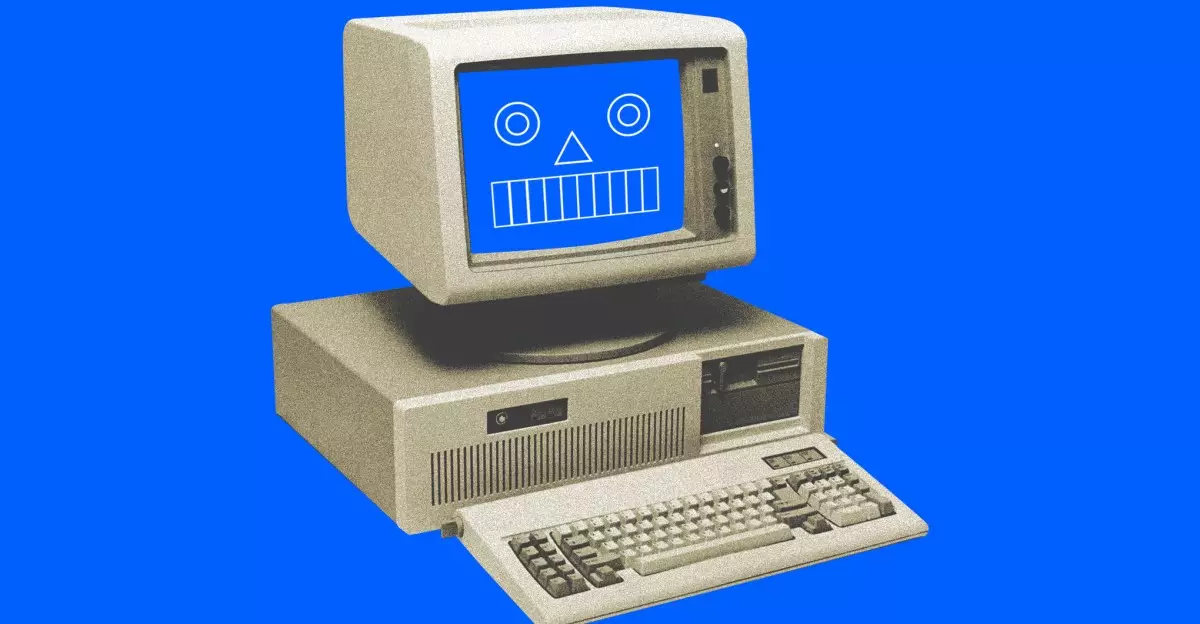In today’s dynamic technological landscape, artificial intelligence (AI) has emerged as a fundamental driver of innovation, particularly in education. As AI startups vie for dominance in the academic realm, their efforts signify more than mere competition; they embody a vision for how future generations will interact with technology in their learning environments. Companies like OpenAI and Anthropic are at the forefront of this revolution, each striving to position their AI tools as indispensable resources for students and educators alike.
The benefits of incorporating AI into education are substantial. The potential to foster critical thinking and enhance learning outcomes resonates loudly, as these companies develop systems that not only provide information but also encourage deeper engagement. However, amidst this race, questions arise regarding the long-term implications of shaping educational experiences through such technologies.
Anthropic’s Bold New Direction
Recently, Anthropic unveiled its initiative dubbed “Claude for Education,” marking a vital entry into higher education. This strategic maneuver demonstrates a commitment to harnessing AI for academic enhancement. Unlike traditional models, which typically offer students straightforward answers, Claude’s “Learning mode” introduces an innovative approach to education. By implementing Socratic questioning techniques, it encourages students to analyze problems critically rather than simply providing solutions.
This shift to a more interactive format aligns with calls for educational frameworks that prioritize analytical skills. The partnerships formed with notable institutions, including Northeastern University and the London School of Economics, underline the significance of collaborative efforts to integrate technology into academia effectively. As the educational landscape evolves, such alliances may determine the future of how AI is utilized in classroom settings.
OpenAI: A Proven Track Record
In contrast, OpenAI has been cultivating academic partnerships for nearly a year, reinforcing its position as an established player in the education sector. With its launch of ChatGPT Edu, OpenAI has made significant strides in ensuring that its offerings meet the specific needs of college students. Initiatives such as the NextGenAI Consortium further reflect OpenAI’s commitment to fostering AI literacy, investing substantial resources into research to support the evolving demands of higher education.
Moreover, OpenAI’s announcement to provide ChatGPT Plus free to U.S. and Canadian college students highlights a strategic approach to capture and retain a dedicated user base within the academic community. By making premium features accessible during crucial academic periods such as finals, OpenAI is not only showcasing its product but also asserting itself as a vital educational ally for students facing heightened academic pressures.
The Implications for Future Generations
The simultaneous announcements from Anthropic and OpenAI underscore a fierce competition that could redefine the educational experience. The significance of this race extends beyond technological innovation; it encapsulates a broader cultural shift in how future users will integrate AI into their academic endeavors. As these tools become deeply embedded in educational frameworks, the implications for how knowledge is acquired, processed, and utilized are profound.
Yet, such advancements come with caveats. As AI continues to develop, concerns regarding dependency on technology and the dilution of fundamental educational values cannot be dismissed. The potential for reduced critical thinking abilities, if students rely too heavily on AI for problem-solving, poses a critical challenge that both companies must address. Encouraging a balance between technological assistance and independent learning will be crucial for optimizing the benefits of AI in education.
Reimagining the Student Experience
As we move forward, the question remains: how will these advancements shape the very fabric of learning? The ongoing evolution of AI represents a profound opportunity to reimagine the student experience. By fostering collaborative learning environments and promoting critical thinking, AI can encourage students to engage with material more thoughtfully.
While the race to dominate the AI education sector is likely to continue escalating, it is essential for both startups and educational institutions to prioritize student well-being and authentic learning experiences. The forthcoming years will not only demonstrate the capabilities of these AI systems but will also reveal their impact on shaping a generation’s approach to education and personal development.
In this transformative era, it is incumbent upon educators, students, and technology developers to navigate these waters carefully, ensuring that innovations serve to enhance learning rather than hinder it. As we stand on the precipice of this new age, the dialogue surrounding AI in education is just beginning, and its eventual outcomes hold the promise of significant change.


Leave a Reply